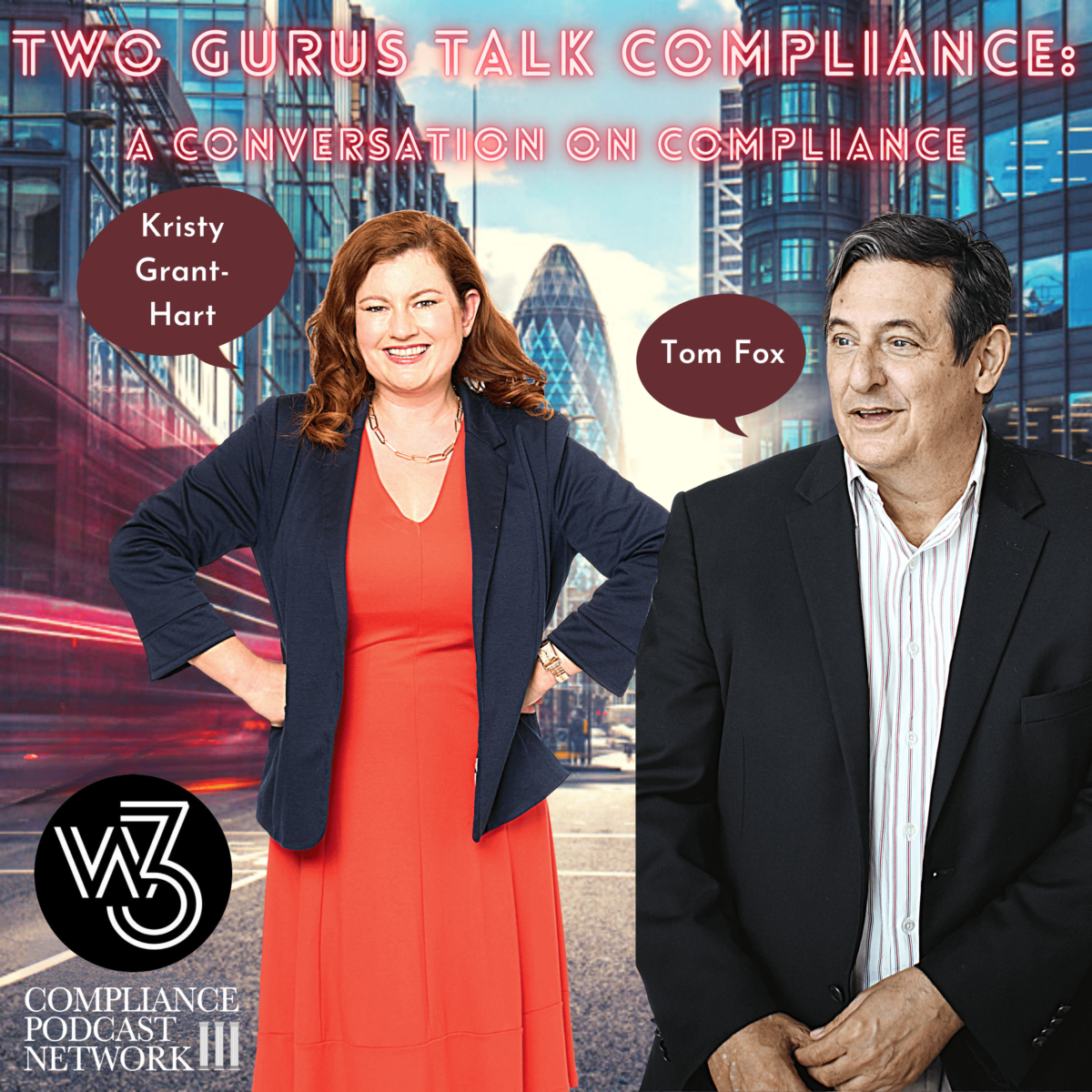The rapid evolution of global commerce has brought unprecedented risks and challenges for compliance professionals. Third-party relationships, supply chain complexities, and an ever-growing web of international regulations have made traditional risk management approaches insufficient. In response, organizations are turning to artificial intelligence (AI) and blockchain to modernize their compliance programs, allowing for real-time monitoring, enhanced due diligence, and predictive analytics to identify potential violations before they escalate.
The Challenges of Traditional Third-Party Risk Management
Organizations have relied on static, manual processes to assess third-party risks for years. Compliance teams would conduct periodic vendor reviews, perform due diligence through questionnaires, and rely on external audits to verify adherence to regulations such as the FCPA and the UK Bribery Act. However, these approaches have several limitations, including the frequency of assessments, high costs and inefficiencies, lagging indicators, and lack of real-time. This can create blind spots between evaluations.
Compliance departments integrate AI-driven predictive analytics and blockchain-backed transparency into their risk management frameworks to overcome these challenges. These technologies enhance oversight in several key ways, including predictive analytics, ML for anomaly protection, automated risk scoring, immutable audit trails, and smart contracts.
Integrating AI and blockchain represents a fundamental shift in the compliance landscape. Compliance officers must adapt by developing a deeper understanding of how these technologies function and working closely with data scientists and IT teams to implement effective risk management solutions. Key actions compliance professionals should take include investing in AI training, building out cross-functional teams, establishing clear policies and procedures, and leveraging blockchain for audit readiness.
As AI and blockchain revolutionize compliance, forward-thinking organizations will be better positioned to mitigate risks, maintain regulatory adherence, and strengthen ethical business practices. The rest of this article will explore key lessons learned from AI-driven compliance programs and real-world case studies demonstrating how companies successfully leverage these technologies.
Lessons for Compliance Professionals
1. From Reactive to Proactive
Predictive compliance marks a shift from the traditional reactive approach to a proactive stance. Historically, compliance efforts focused on identifying violations after they occurred, often leading to penalties, reputational damage, and strained relationships with regulators. With AI-driven predictive compliance, organizations can assess risks before they escalate into full-blown issues.
AI systems analyze vast amounts of data, identifying early warning signs of fraud, corruption, and regulatory violations. By integrating AI into compliance programs, organizations can proactively address risks by adjusting policies, refining internal controls, and implementing mitigation strategies before incidents occur. This shift enhances compliance effectiveness and significantly reduces legal and financial risks.
Adopting predictive compliance also strengthens corporate culture. When employees and vendors know that sophisticated monitoring tools are in place, it acts as a deterrent against unethical behavior. A proactive compliance strategy fosters organizational transparency and trust, aligning ethical business practices with operational goals.
2. AI Enhances Third-Party Due Diligence
AI-powered compliance solutions allow organizations to conduct due diligence faster and more accurately than ever. Unlike traditional methods, which rely heavily on manual data collection and subjective risk assessments, AI-driven systems analyze vast amounts of structured and unstructured data to provide a comprehensive view of third-party risks. These tools leverage natural language processing (NLP) to scan regulatory filings, news reports, and legal records in real time, flagging potential issues before a formal engagement begins.
One of AI’s key advantages in due diligence is its ability to identify hidden relationships and conflicts of interest. Machine learning algorithms analyze patterns in financial transactions, vendor contracts, and social networks to detect undisclosed affiliations that could present corruption risks. This capability is particularly valuable in industries with complex supply chains, where intermediaries and subcontractors operate with minimal oversight.
Beyond efficiency gains, AI-driven due diligence reduces the likelihood of regulatory enforcement actions. Governments worldwide are tightening their scrutiny of third-party relationships, holding companies accountable for misconduct within their supply chains. By leveraging AI to conduct comprehensive and continuous due diligence, organizations can demonstrate proactive compliance efforts, mitigating the risk of fines, reputational damage, and legal liability.
3. Blockchain Creates an Immutable Compliance Trail
Blockchain technology revolutionizes compliance by providing an immutable, tamper-proof ledger recording compliance-related activities. Traditionally, companies have struggled with document integrity, audit trail manipulation, and difficulty proving due diligence efforts. Blockchain addresses these challenges by ensuring that every transaction, contract, and compliance report is permanently recorded and cannot be altered retroactively.
One of the most significant applications of blockchain in compliance is smart contracts. These self-executing agreements enforce predefined compliance rules, ensuring that all contractual obligations are met before processing payments or transactions. For example, if a supplier fails to provide necessary certifications or violates anti-bribery policies, a blockchain-based smart contract can automatically halt transactions, preventing compliance breaches before they occur.
By implementing blockchain-based compliance systems, organizations strengthen their ability to defend against regulatory scrutiny, improve operational efficiency, and foster a culture of integrity. The combination of blockchain and AI ensures that compliance processes are robust, reliable, and adaptable to future regulatory developments.
4. AI and Blockchain Reduce Fraud and Corruption Risks
Fraud and corruption remain two of the biggest threats to global business, with organizations losing billions annually due to unethical practices. AI and blockchain technologies provide companies with the tools to significantly reduce these risks by enhancing detection, prevention, and accountability.
AI’s ability to detect fraud is based on pattern recognition. Machine learning models analyze large volumes of transactional and behavioral data to identify irregularities that may indicate fraudulent activity. For example, AI-driven systems can spot anomalous payment flows, shell companies, or repeated transactions that resemble known bribery schemes. Unlike traditional fraud detection methods that rely on predefined rules, AI continuously learns from new data, improving its ability to identify suspicious activity over time.
Companies can create a robust fraud prevention framework by combining AI’s predictive capabilities with blockchain’s verifiable record-keeping. Organizations can use AI to monitor ongoing transactions for potential fraud while relying on blockchain to maintain a tamper-proof record of financial activities. This dual-layer approach reduces fraud risk and enhances compliance with anti-bribery and anti-money laundering regulations.
Furthermore, regulatory agencies are taking notice of these technological advancements. Government bodies now expect businesses to incorporate AI and blockchain into compliance programs to ensure transparency and accountability. Companies that fail to adopt these technologies risk falling behind in regulatory expectations, increasing their exposure to legal and reputational damage.
5. AI Helps Identify Emerging Geopolitical Risks
In the chaos of 2025, businesses are exposed to a wide range of geopolitical risks, including trade restrictions, sanctions, political instability, and shifting regulatory environments. America’s business friend today could well be America’s geopolitical enemy tomorrow. Traditional compliance models often struggle to keep pace with these rapidly evolving risks, leaving organizations vulnerable to financial losses, legal repercussions, and reputational damage.
AI-powered risk assessment tools provide a proactive solution by continuously monitoring and analyzing geopolitical developments in real-time. Machine learning algorithms process vast amounts of data from news reports, government announcements, market trends, and regulatory updates to identify emerging risks before they impact business operations. By leveraging AI, compliance teams can anticipate geopolitical threats and adjust their risk management strategies accordingly.
AI-driven systems can detect changes in trade policies, predict potential sanctions on high-risk jurisdictions, and flag supply chain vulnerabilities stemming from political unrest. Compliance teams can use these insights to take preemptive actions, such as adjusting procurement strategies, diversifying supply chain partners, or reinforcing due diligence on vendors operating in volatile regions.
Moreover, AI helps organizations navigate complex international regulations by mapping regulatory changes across multiple jurisdictions. Instead of manually tracking compliance requirements for each country, businesses can rely on AI to automate regulatory updates and ensure continuous adherence to legal standards worldwide.
By integrating AI into compliance programs, organizations can transform geopolitical risk management from a reactive process into a proactive strategy. This reduces regulatory exposure and enhances business resilience in an increasingly uncertain global landscape.
The Future is Now: Mastercard – AI in Fraud Detection and Compliance Risk Assessment
The future of compliance is unfolding now, and Mastercard’s recent success offers a compelling glimpse into this new era.
With billions of daily transactions and ever-evolving financial crime methods, Mastercard recognized the limitations of conventional fraud detection systems. The company embraced artificial intelligence (AI) for real-time transaction analysis, significantly transforming its compliance landscape. Mastercard’s AI-driven system scrutinizes vast datasets instantaneously, pinpointing irregular spending behaviors and high-risk cross-border activities that traditional methods might miss. The implementation resulted in remarkable outcomes—a 40% improvement in fraud detection rates, significantly reduced regulatory compliance violations, and notably strengthened customer trust and transactional security.
This example underscores the pivotal shift compliance departments must embrace, transitioning from reactive to proactive strategies through technology. AI, complemented by blockchain, equips organizations to anticipate and neutralize risks in real-time, delivering predictive analytics, enhanced due diligence, and immutable records for rigorous compliance assurance. Compliance professionals must understand and actively engage with these technologies, collaborating cross-functionally to embed AI-driven systems within organizational risk management frameworks.
The Mastercard case illustrates how strategic technology investments translate into tangible compliance benefits, positioning businesses to mitigate emerging risks effectively and uphold ethical standards. The future is now, and embracing AI and blockchain is no longer optional—it’s essential for modern compliance effectiveness.
The compliance landscape is fundamentally transforming, driven by the rapid evolution of global commerce and intensifying regulatory scrutiny. Traditional methods of third-party risk management—periodic manual assessments and retrospective audits—are increasingly proving inadequate in addressing the complexity and speed of today’s compliance environment. Organizations are now turning to cutting-edge technologies like artificial intelligence (AI) and blockchain, embracing predictive analytics, real-time monitoring, and enhanced transparency to proactively identify and mitigate risks before they escalate into full-blown compliance issues.
This shift from reactive to proactive compliance improves risk management effectiveness and significantly reduces financial and legal exposure. AI-powered systems enable compliance teams to conduct comprehensive due diligence, uncover hidden relationships and conflicts, and dynamically adapt to emerging geopolitical threats. Meanwhile, blockchain technologies provide immutable audit trails and smart contracts that automate compliance processes, reducing fraud, corruption, and audit trail manipulation. Mastercard’s successful deployment of AI-driven fraud detection highlights the potential of these technologies, demonstrating substantial improvements in detection rates, reduced regulatory violations, and increased customer trust. For compliance professionals, the imperative is clear—embracing AI and blockchain technologies is not merely beneficial; it’s essential for navigating the complexities and risks inherent in modern business.









